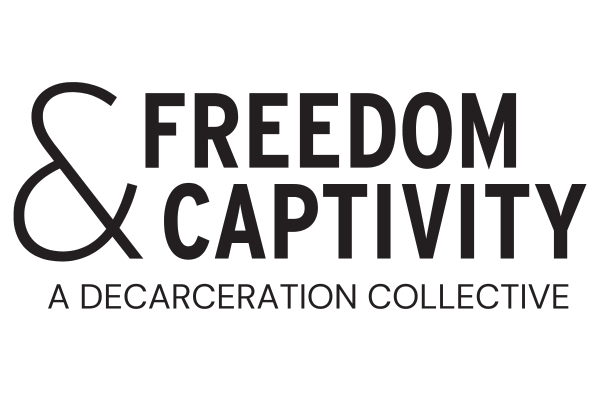18 Steps to Decarceration in Maine!
1. Invest in Youth
Implement restorative justice in schools; reform school criteria to accurately reflect history; provide free or affordable higher education to all; fund community centers to care for youth; provide extra supports for kids with incarcerated parents; eradicate juvenile incarceration; extend diversion-over-incarceration to include emerging adults (18-27 y/o).
2. Invest in Families and Communities
Invest in jobs that pay a living wage, housing, healthcare, and transportation; build a mental health response network; expand free access to SUD treatment programs; transform foster care.
3. Decriminalize People and Demilitarize Systems
Decriminalize drugs, sex work, houselessness, and undocumented status; prioritize alternatives to incarceration; demilitarize the police and transform police culture; fund non-police crisis response systems; build an effective public defender system; eliminate cash bail.
4. Build community-based safety and responses to harm
Research the factors that drive contact with the criminal legal system and incarceration; create individual and community/neighborhood safety plans; form community-building circles throughout the state; develop an effective response to domestic violence and sexual abuse; create broader restorative options for addressing arm; build a transformative justice alternative to incarceration; elect DAs who are committed to RJ and diversion pathways; enact sane gun laws; create community hubs for cross-race and -class conversations; launch a Truth Telling initiative for police violence and racist injustices; recognize tribal sovereignty.
5. Confront growing wealth inequality
Revise the tax code; reduce corporate control of real estate; support alternative forms of ownership; rethink public financing.
6. Build a restorative prison culture
Expand trauma-healing programs for residents and staff; implement restorative community-building and generative dialogue circles; build a team of RJ practitioners to address harm; support creative staff-resident collaborations; expand the “principal of normality” throughout facilities; allow residents to personalize their living quarters; demilitarize staff uniforms; base Corrections Officer training on supportive techniques; encourage the universal use of first names.
7. Normalize professional development in carceral spaces
Initiate or expand formalized peer mentorship training; shift policy to allow peer crisis intervention; initiate or expand professional training opportunities; allow incarcerated people to become vocational training instructors; open opportunities for residents to work for outside organizations; expand access to higher education inside.
8. Enhance community and family connections inside
Change the narrative about incarcerated people; expand victim offender dialogue; create surrogate avenues for victim offender dialogue; fully revamp visitation; make conjugal visits available; set up educational parenting visits; implement a restorative conference-type process for family members; make phone and video calls free; grant all residents access to email; create mentoring opportunities between adult and juvenile facilities; support full civic engagement as Maine citizens; open public institutions to the public; bring back regular furloughs; allow incarcerated people to teach across the walls.
9. Support healthy living in jails and prisons
Improve medical and mental health services inside; introduce more healthful food; bring back the real care package system.
10. Move toward decarceration
Establish a reentry plan at the time of admission for every resident; make security classifications transparent; enact Second Chance policies; retroactively cap sentences for crimes committed by “emerging adults”; instate compassionate geriatric release; reinstate parole; close prisons as their populations dwindle.
11. Destigmatize incarcerated people, focusing on women
Eradicate stigmatizing language; interrupt misogynistic language for formerly incarcerated women; pass the primary caregiver bill; make justice-impacted people a protected class.
12. Reform post-release supervision policies
Eradicate reincarceration for technical violations of probation; abolish income withholding; remove fee requirements from probation; review and revise restitution policies; expand the supervised community confinement program; re-establish parole.
13. Open housing to formerly incarcerated people
Support MPRN’s forthcoming legislation; establish independently run 3/4 houses; remove all barriers to low rent, subsidized, and public housing; revive the Fair Chance Housing Act; provide meaningful funding for returning community members; provide low interest loans with matched funding for first-time home buyers; build reentry bridges for families; create and disseminate an annual reentry information booklet.
14. Open employment opportunities for incarcerated people
Expand Ban The Box; remove all the barriers to certification unrelated to public safety; eliminate mandatory waiting periods for many professions; integrate the business community with release; allow incarcerated people to hold jobs on the outside; educate business owners and managers about existing incentives.
15. Decriminalize driving offenses, support transportation
Invest in public transport; develop private-public transport partnerships; create a low interest loan fund; delink traffic violations from probation revocations; remove excessive fines for traffic violations; limit license suspensions.
16. Improve medical care and wellbeing on the inside
Assign Health Navigators to returning citizens; develop a transitional health care plan; extend Maine care for the first year of reentry.
17. Support and improve reentry housing and services
Support better coordinated reentry services; establish direct support for incarcerated people and their families; form reentry community support groups in every County; offer free life skills courses; Implement a reparative reintegration process; provide special support for turning mothers.
18. Reform the criminal code toward accountability and repair
Retroactively eradicate truth in sentencing laws, life without parole, and lengthy sentences for emerging adults; vastly reduce the length of sentences and the number of offenses that carry a prison sentence; cap all sentences at 45 years; reinstate presumptive parole; expand good time credits; amend Maine’s Constitution to allow early safe release.
Download the PDF here. Excerpted from Leo Hylton and Catherine Besteman’s 3-part essay, "Restorative Pathway to Decarceration and Abolition," featured in the January, February and March 2023 issues of The Bollard.
